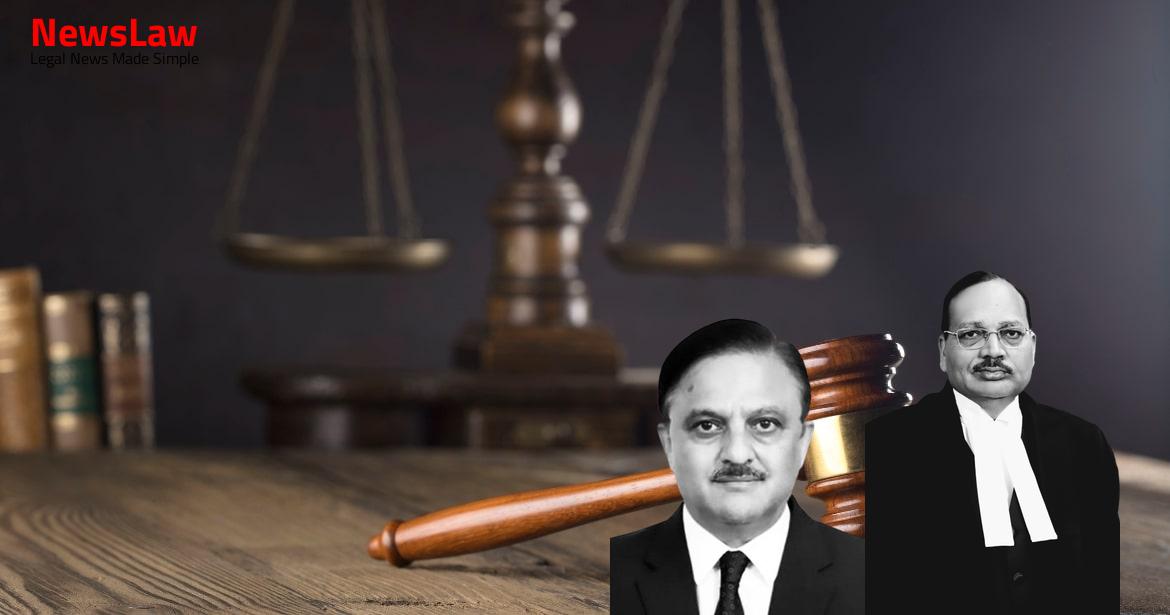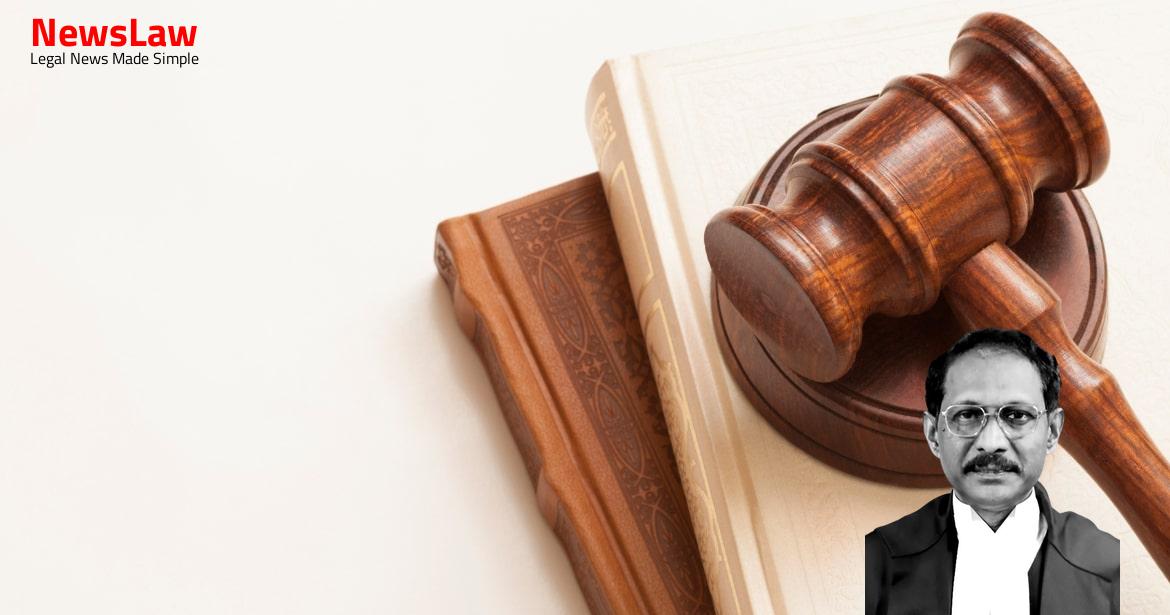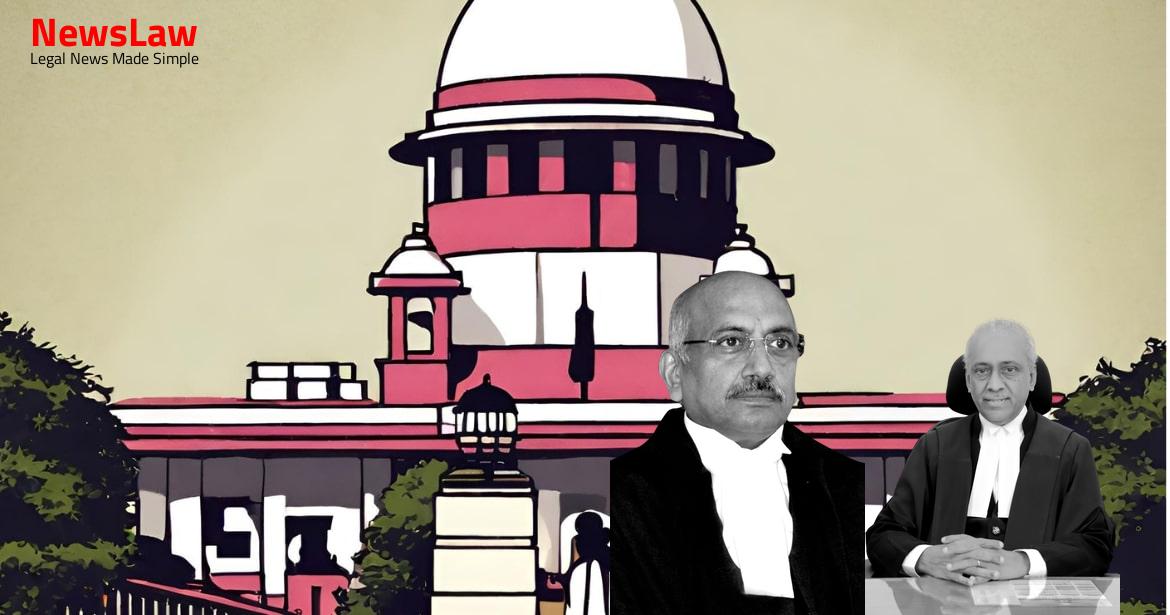The court’s legal analysis in the case focused on the criteria for disability pension entitlement in military service. The decision shed light on the importance of establishing a reasonable causal connection between the injuries leading to disability and the individual’s military service. This summary delves into the key aspects of the court’s analysis in this significant legal matter.
Facts
- The respondent suffered an accident while on leave on 8 November 1999, resulting in a head injury and unconsciousness.
- Regulation 173 of the Pension Regulations for the Army, 1961, and Rule 12 of the Entitlement Rules for Casualty Pensionary Awards, 1982 were cited by the respondent.
- The appellants were directed to release disability pension at 80% disability for life from the date of the respondent’s discharge, with arrears restricted to three years prior to the application filing and 10% interest on the arrears.
- The respondent was enrolled in the Army on 4 June 1965, invalidated out of service on 28 September 2000, and made an application to the Armed Forces Tribunal for disability pension.
- The accident occurred shortly after the respondent travelled from his duty to a leave station.
- The Medical Board assessed the respondent’s disability at 80% and placed him in a low medical category (EEE).
- The respondent voluntarily enrolled in the Defence Security Corps on 7 January 1976.
- After rendering 10 years and 88 days of colour service, he was transferred to the reserved establishment on 30 August 1975.
- Injury sustained during authorized leave period attributed to Military service
- Act not inconsistent with Military service
- Disability deemed attributable to Military service
- Tribunal’s decision dated 15 December 2010 in T.A. No.237 of 2010 (Ex. NK. Raj Pal v. Union of India & Ors.) referenced
Also Read: Analysis of Cheating and Forgery in Passport Case
Arguments
- Union of India challenged the decision of the Tribunal in T.A.No.237 of 2010 but the special leave petition was dismissed summarily.
- The prevailing decision in the case of Union of India & Ors. v. Vijay Kumar No.3989606 P, Ex-Naik is considered to be the relevant one.
- Respondent was granted annual leave on 6 November 1999 and met with an accident on 8 November 1999 resulting in 80% disability.
- Regulation 173 of the Pension Regulations outlines the primary conditions for the grant of disability pension.
- Reasonable connection between the injuries leading to disability and Military service is emphasized.
Also Read: Discrepancy in Date of Birth: Court’s Legal Analysis
Analysis
- Disability pension can be granted to an individual invalidated out of service due to disability from military service.
- The disability must be attributable to or aggravated by military service in non-battle casualty and assessed at 20% or more.
- The Entitlement Rules, 1982 define ‘Duty’ and clarify that personnel traveling between duty and leave station are treated as on duty.
- The respondent did not claim that the accident occurred while traveling to the leave station.
- The respondent met with an accident on a public road two days after reaching the leave station.
- There is no nexus between the military service and the injuries sustained by the respondent.
- The accident occurred when the respondent was not strictly on duty.
- In accordance with Rule 12, disabilities sustained during accidents when personnel is not on duty may be attributable to service under specific conditions.
- Entitlement Rules for Casualty Pensionary Awards, 1982 are beneficial and should be liberally construed.
- Reasonable causal connection between injuries resulting in disability and military service is required.
- Disability must be attributable to or aggravated by military service and be more than 20% for entitlement to disability pension.
- The judgment emphasizes that there is no causal connection between the overlooked aspect and the root of the matter.
- The Tribunal failed to consider this crucial aspect in their decision-making process.
- The overlooked aspect is significant as it goes to the core of the issue at hand.
Also Read: 2-1 Verdict Halts Conviction, Dissent Highlights Potential Flood of Unclear Legal Rulings
Decision
- Respondent was not entitled to the disability pension.
- O.A. No.944 of 2010 filed by the respondent was dismissed.
- Civil Appeal is allowed.
- Impugned Judgment dated 23 December 2010 is set aside.
Case Title: UNION OF INDIA MINISTRY OF DEFENCE THROUGH THE SECRETARY Vs. EX NAIK RAM SINGH (2022 INSC 728)
Case Number: C.A. No.-009654-009654 / 2014



